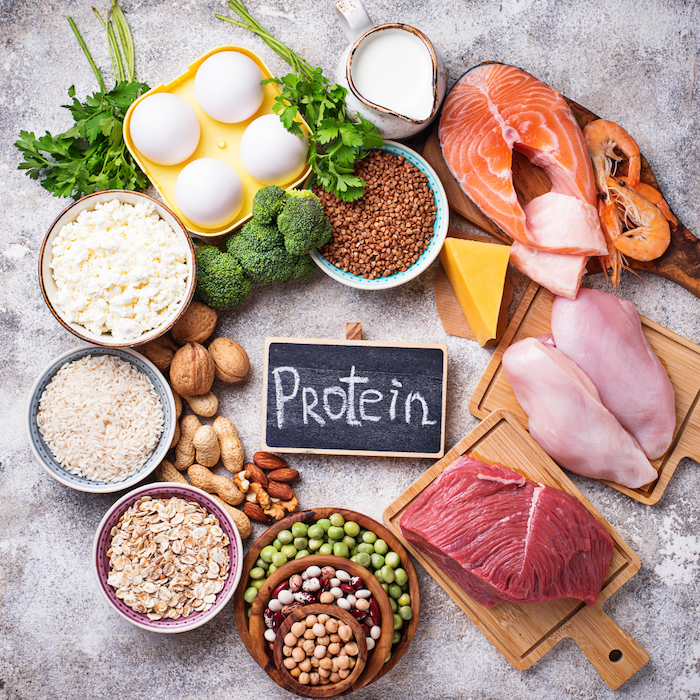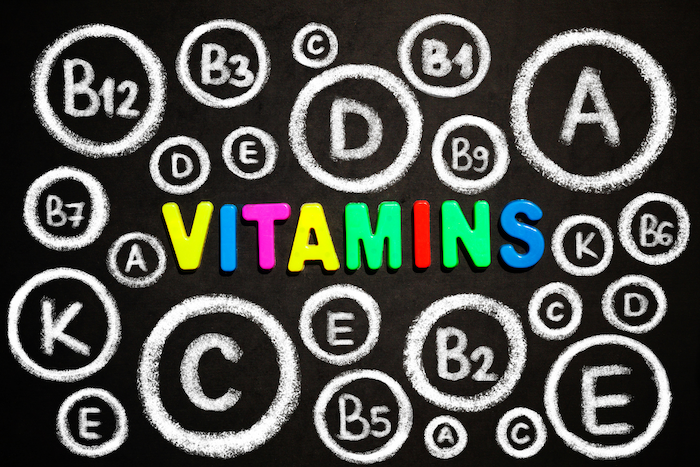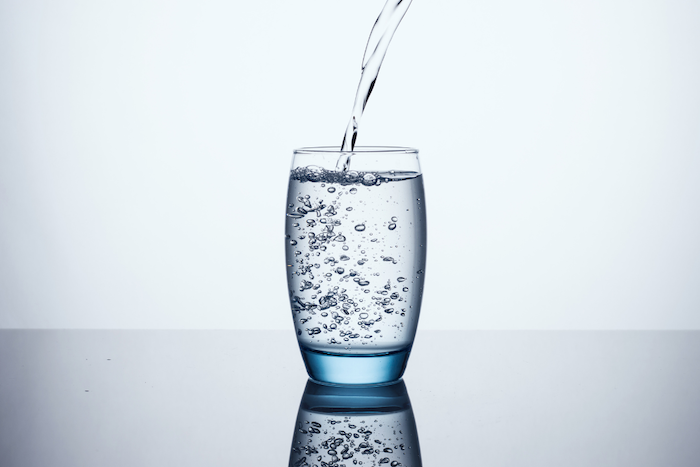Essential nutrients are, well, essential. But what does this mean? Well, an essential nutrient is classified as any nutrient that the body needs to promote growth, prevent disease, or support optimal health, but the body doesn’t make it. Or, if the body does make the nutrient, it only makes trace amounts of it and not nearly enough.
There are SIX types of essential nutrients that your body needs in order to function properly. To clear things up, a nutrient is a substance that provides nourishment essential for growth and the maintenance of life. This includes vitamins, proteins, and everything else you’re going to read about in today’s blog.
So keep reading to find out the six types of nutrients you need to ensure you’re giving your body on a daily basis!
1. Protein 
Protein isn’t just for muscles. Every cell in your body – from bone to skin to hair – contains protein. They’re the building blocks of the body.
In fact, on average, 16% of a person’s weight is from protein! This is because all of your hormones, antibodies, and other important substances are made up of protein.
But not all protein is the same. They’re made up of different amino acids. While the body can create some amino acids on its own, many of the essential amino acids you need can only come from food or other outside sources. In order for your body to function properly, you need a variety of these amino acids in your body.
With the amino acids you consume throughout the day, your body is able to create complete proteins that serve your health. So make sure you’re getting plenty of full proteins or amino acids through your diet or supplement regimen!
2. Carbohydrates
Many diets focus on cutting out carbohydrates, but you do need them for a healthy body. Cabs fuel your body, especially your central nervous system and brain. They also protect against disease.
Carbs should make up about 45-65% of your total daily calories. Just remember that some carbs are better than others. You should opt for whole grains, beans, and fiber-rich vegetables and fruits over refined grains and processed foods.
3. Fats
Fats have a bad reputation, but healthy fats are an important part of a healthy diet.
This is because fat supports many of your body’s functions such as vitamin and mineral absorption, blood clotting, building cells, and muscle movement. And though fat is high in calories, don’t forget that calories are an important energy source for your body.
Experts recommend that you get no more than 20-35% of your daily calories from fat. When you include healthy fats in your diet – like omega-3 and omega-6 fatty acids – you’ll be improving brain function, balancing your blood sugar, and reducing your risk of several different types of disease.
4. Vitamins
When it comes to warding off disease and maintaining optimal health, vitamins are vital. In order to support its many functions, the body needs these nutrients. There are in total 13 essential vitamins that the body requires, including vitamins A, C, D, and the B vitamins.
Each of these vitamins plays an important role within the body, and a lack of them can result in health problems and disease. They’re also essential for healthy vision, skin, and bones. But unfortunately, too many Americans don’t get enough.
If you’re low in any of these 13 essential vitamins, you’re going to feel it. For example, if you’ve been feeling blue, you may be low in vitamin D. If you’re often tired or have difficulty remembering things, you might not be getting enough vitamin B12. And if you’re irritable and are worried that your skin doesn’t look as nice as it could, you’re likely lacking in vitamin C.
Don’t let your body suffer unnecessarily. Here at Purality Health, we offer MANY of the vitamins (and other nutrients) that your body needs to be at its best.
>>> Click here to see which one could help you best
5. Minerals
Minerals are a lot like vitamins in that they support the body and its many functions. These nutrients are essential for things like building strong bones and teeth, regulating metabolism, maintaining hydration, and more. Some of the most common – and important – types of minerals are magnesium, calcium, and iron.
Magnesium is in every cell within your body, helping regulate healthy sleep patterns, supporting the muscles, boosting heart health, and so much more. Calcium helps strengthen bones, supports nerve signal transmission, and regulates healthy blood pressure. And iron supports the creations of red blood cells and hormones.
6. Water
Did you know that you can go for weeks without food, but only a few days without water?
Water is absolutely crucial for every system within your body. It also makes up the majority of you! About 62% of your weight is water!
Water improves brain function and mood. It acts as a shock absorber and a lubricant in the body. And it helps flush out toxins, carry nutrients to the cells that need them, hydrate the body, and boost digestion.
Even mild dehydration can cause fatigue and cognition issues. So go grab a glass and give your body what it needs!
